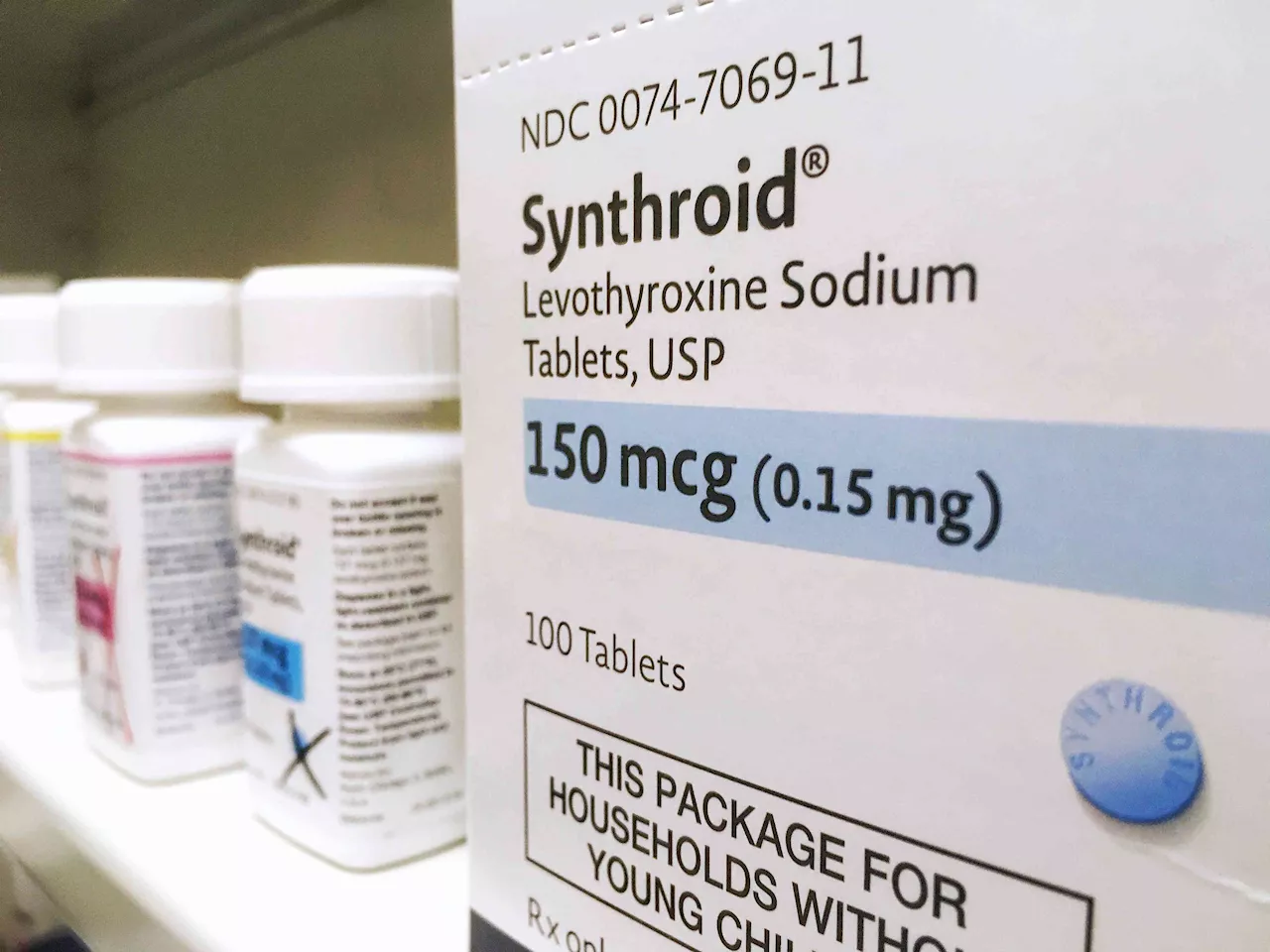A new study found that levothyroxine, a common medication for hypothyroidism sold as Synthroid, is linked to bone loss in older adults. Here's what experts think of the finding, and whether you should consider changing medications.
Kristen Fischer has written for numerous health publications, hospitals, and medical companies, and is a member of the Association of Health Care Journalists.Nick Blackmer is a librarian, fact-checker, and researcher with more than 20 years of experience in consumer-facing health and wellness content.Levothyroxine, a common medication for hypothyroidism sold as Synthroid, is linked to bone loss in older adults, a new study found.
The common hypothyroidism medication levothyroxine is linked to bone loss in older adults, according to a study presented at the Radiological Society of North America annual meeting on Dec. 1. “Our study suggests that even when following current guidelines, levothyroxine use appears to be associated with greater bone loss in older adults,” saidThe study included participants aged 65 or older with hypothyroidism, 81 of whom were taking levothyroxine daily, and 364 non-users., which measures the hormone in the brain that regulates thyroid function, and free T4, which reflects levels of thyroxine.
United States Latest News, United States Headlines
Similar News:You can also read news stories similar to this one that we have collected from other news sources.
 New study links air pollution with higher rates of head and neck cancerA recent study correlates higher levels of pollutant particulate matter to higher occurrences of head and neck aerodigestive cancer.
New study links air pollution with higher rates of head and neck cancerA recent study correlates higher levels of pollutant particulate matter to higher occurrences of head and neck aerodigestive cancer.
Read more »
 New DNA evidence proves popular narratives about Pompeii victims are entirely false: studyToday's Video Headlines: 11/7/24
New DNA evidence proves popular narratives about Pompeii victims are entirely false: studyToday's Video Headlines: 11/7/24
Read more »
 New study claims popular DEI practices can lead to ramped up hostility and racial tensionsCivil rights attorney Devon Westhill provides analysis of the increasing trend away from diversity, equity and inclusion initiatives as President-elect Trump prepares to return to the White House.
New study claims popular DEI practices can lead to ramped up hostility and racial tensionsCivil rights attorney Devon Westhill provides analysis of the increasing trend away from diversity, equity and inclusion initiatives as President-elect Trump prepares to return to the White House.
Read more »
 LLMs beat human neuroscience experts in predicting study outcomes.New study shows AI large language models (LLMs) outperform human neuroscientists in predicting neuroscience study outcomes.
LLMs beat human neuroscience experts in predicting study outcomes.New study shows AI large language models (LLMs) outperform human neuroscientists in predicting neuroscience study outcomes.
Read more »
 Study links gas commonly found in Utah homes to childhood leukemiaA recent study from Oregon State University found a link between exposure to radon gas and childhood leukemia rates.
Study links gas commonly found in Utah homes to childhood leukemiaA recent study from Oregon State University found a link between exposure to radon gas and childhood leukemia rates.
Read more »
 Study links liver-brain communication to daily eating patternsPeople who work the nightshift or odd hours and eat at irregular times are more prone to weight gain and diabetes, likely due to eating patterns not timed with natural daylight and when people typically eat.
Study links liver-brain communication to daily eating patternsPeople who work the nightshift or odd hours and eat at irregular times are more prone to weight gain and diabetes, likely due to eating patterns not timed with natural daylight and when people typically eat.
Read more »
